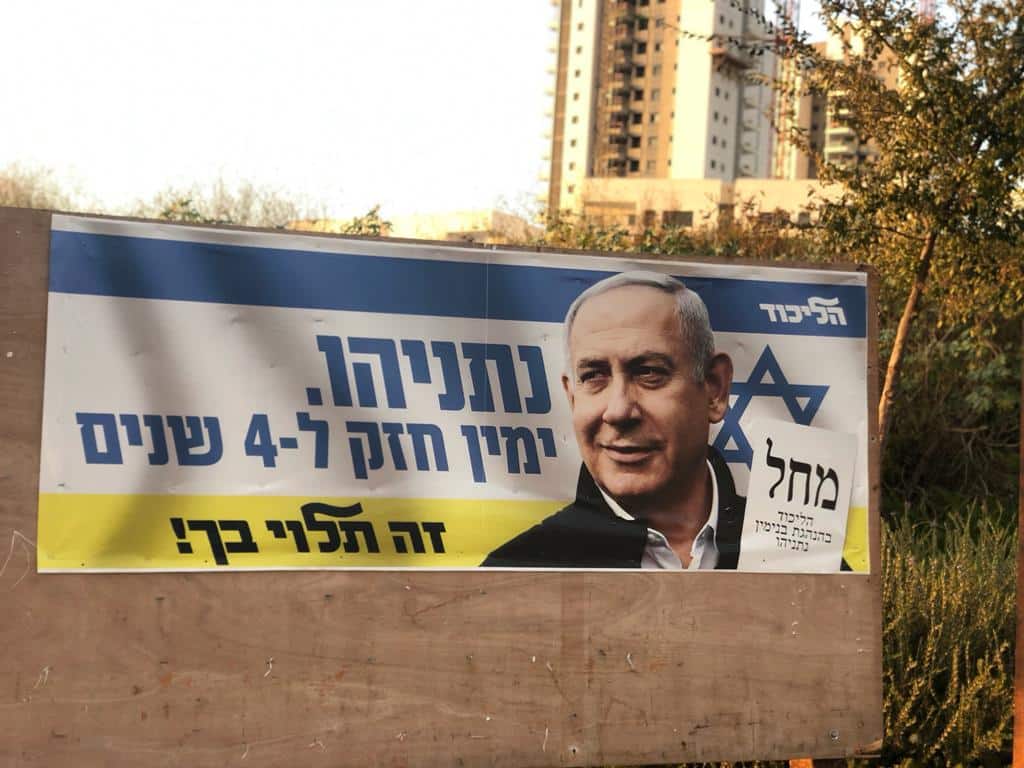Although the Israeli housing issue is the most severe economic crisis of the past 15 years, it does not occupy a central place in the discourse taking place ahead of the elections for the 25th Knesset. However, a careful examination of the parties’ platforms shows that most of them are offering solutions to the crisis, from expanding rental housing, through the issuance of bonds linked to home prices, and even offering an exemption to private investors who will offer “fair rental” conditions to tenants. For anyone who cares about housing in Israel, read this on the way to the polling station.
The Israeli housing crisis issue is the most severe economic crisis that Israel has seen in the past 15 years. During these years, the price of homes has increased by 150% in real terms, and in the past year alone, prices increased by 19%. These price surges lead an entire generation of young Israelis to despair and wonder about their very future in the country.
You would expect the above set of facts to make housing the central issue of the election campaign currently underway in Israel, or at least one of the main issues. Unfortunately, that hasn’t happened. This time too, the elections focus primarily on the figure of Benjamin Netanyahu and his attempts to return to power, despite the simultaneous conduct of his trial, this time adding the possibility of a significant increase in the power of the far-right parties.
Still, for those who want to put the issue of Israel real estate into the range of considerations according to which they will vote on November 1, the platform of some parties includes statements and proposals on a possible solution to the housing crisis. We will review these platforms here. The parties that have not published organized platforms on the issue will be examined in accordance with press reports from recent weeks and concrete actions they have taken in connection with resolving the crisis in recent years.
Yesh Atid: Increase supply and rental housing
When Yair Lapid, the current prime minister, served as finance minister in Benjamin Netanyahu’s government from 2013 to 2014, shortly after the great social protests of 2011, he saw the handling of housing prices as one of his main tasks. The two main measures he took were the “zero VAT” law, which was not approved, as well as the establishment of a long-term rental market of tens of thousands of housing units, a move for which the state-owned company “Apartment for Rent” was established, that operates to this day.

This time too, the issue of housing was included in Yesh Atid’s agenda, although not in a particularly prominent place. According to the policy goals, the party’s housing plan rests on three main legs: increasing supply; targeted assistance for young couples; and the development and regulation of the rental market. The program also addresses the issues of affordable and public housing.
The policy also notes that “Yesh Atid will promote industrialized and modular construction in all regions of the country in general, and in urban renewal and areas without economic feasibility in particular. Such a decision will reduce the cost of construction by tens of percent and expedite it,” and the party will work “to implement innovation in the world of construction as an accelerated and cost-effective response to the housing crisis in Israel. We will promote urban renewal, with an emphasis on areas of demand, and allow veteran apartment owners to convert their apartment size by creating two apartments.”
Likud: Bonds linked to housing prices and incentives for contractors to execute rapid construction
The Likud party headed by former Prime Minister and opposition leader Benjamin Netanyahu did not publish an orderly policy, but in August this year, Netanyahu published the details of a shortened economic program entitled An Emergency Economic Plan.

In the area of housing, Netanyahu noted past government schemes, such as the Price per Occupant program, connecting the periphery to the center through roads and infrastructure, as well as releasing land and moving military bases from the center to the south, and adding a new move – issuing government bonds that are linked to home prices, in order to lower demand in the housing market. It was also proposed to shorten the time it takes to obtain building permits (although it was not specified how) and to continue subsidizing land for construction for young couples via discounted sales plans. Financial incentives and benefits for contractors for rapid construction were also proposed.
Machane Hamamlachti: Housing Minister’s party has not published a policy for dealing with the Israeli housing crisis
Surprisingly, the party of outgoing Housing and Construction Minister Ze’ev Elkin, Machane Hamamlachti (the State Camp) headed by Defense Minister Benny Gantz, has, thus far, not published any platform on housing. Given this situation, we can only judge by Minister Elkin’s actions during his tenure. The main ones are the return of the government’s subsidized sales to first-time home buyers in high volumes through the “Discounted Apartment” campaign and performing additional actions for the benefit of the buyers, such as amending the Sales Law in a way that prohibits linkage of the entire price of an apartment to the Construction Price Index. Those who were less enthusiastic about these measures were the contractors and their representatives, who argued that these measures only increase home prices.
Shas: An authority for the war against poverty to be established
Shas, headed by Aryeh Deri, which presents itself as a social party, has not published a policy on housing. The closest thing to this is the party’s election promise to establish an “Anti-Poverty Authority” which will coordinate all the activities of government ministries addressing poverty, including the issue of housing.
Labor: Marketing state land without profit, tax exemption for landlords in “fair rent”
Labor Party, headed by Transportation Minister Merav Michaeli, published the most detailed and in-depth plan on the subject of housing. In its platform, the party addresses three main factors in the Israeli housing crisis: “The use of public land in Israel as a tool for generating revenues for the state and not as a means of ensuring fair and affordable housing; the lack of regulation in the rental apartment market in stark contrast to a significant proportion of advanced countries in the world; altering the policy for public housing and affordable housing.”
According to the party’s policy, half of the state’s land will be marketed at a reduced non-profit cost, including extensive construction of rental apartments by government companies, which will then rent out the apartments at regulated prices. The platform also proposes a comprehensive reform in urban planning and acceleration of urban renewal processes and calls for strengthening public housing, expanding the criteria, and consolidating those eligible for the Ministries of Housing and Aliyah and Absorption.
Labor also offers a tax exemption to private investors who rent out their apartments under certain conditions, including rental for a minimum of 4 years in which the rent will not be raised beyond the increase in the index. In addition, supervision of housing conditions and a ban on brokerage fees on tenants are proposed. However, it is proposed to raise the tax rate on owners of more than three apartments.
Religious Zionist: No platform, Ben-Gvir wants to distribute land for free
The Religious Zionist party, Tzionut Hadatit, headed by MK Bezalel Smotrich, which in this election also includes MK Itamar Ben-Gvir’s Otzma Yehudit, and the Noam party, did not present an orderly platform in the area of housing. However, last week Ben-Gvir appeared at a large real estate conference where he presented a number of principles, all of which, are related to the Arab public in Israel.
According to Ben-Gvir, there is discrimination in favor of the Arab public on a number of parameters. The first is that the state takes care of the neighborhoods of IDF soldiers that come from Druze and Muslim minorities, and does not do the same towards Jewish discharged soldiers: “I am against discrimination, if they give out lots to Muslim discharged soldiers at a 90% discount, why not distribute to Jews as well?”, he questioned. Gvir further argued that in the Galilee settlements, land prices in Arab localities are significantly lower than in Jewish localities.

Torah Judaism: Free land for young couples, abolishing discrimination against yeshiva students
The Yahadut HaTorah (Torah Judaism) party, which represents the two main streams of the Ashkenazi ultra-Orthodox community –Hasidim and Lithuanians – held the housing portfolio until a year and a half ago. The platform commits to demanding a solution to the housing shortage for the Israeli public in general, and the ultra-Orthodox public in particular, and to bring about a fundamental change in housing policy and in affordable housing that will enable young couples to obtain a suitable apartment on realistic terms.
Additional clauses state that the party “will insist that young couples be able to obtain suitable apartments under discounted rental terms, will require the provision of state land for the benefit of those entitled to the Ministry of Housing for free, without compensation, reducing or canceling the tax on building materials, will work to establish a multi-year plan to fill the housing shortage, for the entire population in Israel and especially for the ultra-Orthodox public and for discharged soldiers. We will also demand the establishment of designated neighborhoods for the ultra-Orthodox population, and we will insist that the discrimination against yeshiva students who are not eligible for government assistance programs will be corrected.”
Yisrael Beiteinu: Change the tender system, offer financial incentives to authorities that build quickly
As Minister of Finance, the chairman of the Yisrael Beiteinu party was rather involved in (unsuccessful) attempts to resolve the housing crisis, by allocating resources to the “Target Price” program led by Housing Minister Zeev Elkin, and by increasing the purchase tax on buyers of investment homes in order to cool the market.
Last June, a few days before the decision to dissolve the Knesset, Lieberman, together with Interior Minister Ayelet Shaked and Housing Minister Zeev Elkin, presented a new housing plan that, of course, did not have time to be implemented, but included an increase in subsidies for construction in the periphery, an increase in the planning powers of the local government, and for the first time – signing “umbrella agreements” to accelerate construction with the regional councils including rural settlements.
In its platform, Yisrael Beiteinu proposes the implementation of a multi-year plan to solve the Israeli housing crisis, the main points of which are to change the method of tenders of the Israel Lands Authority so that contractors do not compete for the highest price for the land, but rather on the quality of construction, the speed of delivery of the apartments and the final price for the consumer. The incentives also include funds for local authorities that grant building permits in a short period of time, and for the transition to an industrialized construction method, which is both faster and saves on manpower.”
Hadash-Ta’al: Expanding the jurisdiction of Arab localities and equal land allocation
The platform of the Hadash-Ta’al list, headed by Arab MKs Ayman Odeh and Ahmad Tibi, consists of two main principles: the first is a significant increase in state involvement in housing, in accordance with the principles of socialism espoused by Hadash, and the second is the elimination of discrimination that the list claims are committed against Arab society in Israel. Accordingly, the party’s platform includes a long list of proposals for change, including the massive expansion of public housing and the public construction of apartments, the abolition of the Kaminitz Law, which allows the state to quickly demolish illegal construction (which is considered a common phenomenon in Arab communities), and the approval of master plans for all villages and cities in Arab society while expanding the jurisdictional areas of Arab localities. The platform also calls for the equitable allocation of state land to all citizens, the enactment of restrictions on rental prices, the definition of a standard for a proper apartment and a national rental registry, recognition of the “unrecognized” villages, and the provision of services to the residents who live in them, the redistribution of municipal jurisdictions and the transfer of property tax revenues to poor cities, and the construction of new settlements for the Arab population.
Things can only get better
Although the parties seem to have refrained from paying much attention to the housing sector in their platforms, there is nevertheless room for some optimism about the chances that the government formed as a result of tomorrow’s elections will act on the issue. The reason for this is that the Israeli housing crisis, more than any other issue, is becoming a volatile challenge that could lead to widespread social protests, more severe than those that occurred in 2011. Therefore, any rational government will surely work to defuse the explosive, before it’s too late. The problem is that, as we have seen in previous election campaigns, and as the polls conducted have indicated, it is not at all certain that the political divide will be resolved and that any government will indeed be formed after the elections. And this is bad news – not just for housing, but for the country as a whole.








